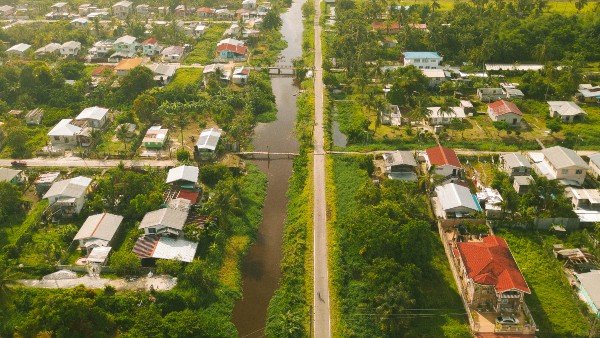When embarking on new approaches to climate change and carbon reduction, are we asking the right questions? Clive Marsh FRSA suggests not and the result is that we are often doing the wrong thing really well.
How many people would really want nuclear waste stored in their back garden? How many people would like to heat their house with fossil fuels if the carbon exhausts created in so doing remained in their living room? How many people who have a bonfire light it as far as possible from their own house (at the end of their garden), which is closer to their neighbour's house?
Now what do these three things tell you about most people? Before you start squirming with the discomfort of guilt or getting angry for being lumped in with the guilty, don't. Our human nature and mortality leads us as a society into making decisions that give us a quick return even if not the right return.
Return on our investment is something that accountants like me and governments think they are good at. We are, however, doing the thing that is easiest, which is not necessarily the same as doing the right thing. What we need to do is spend more time in setting the right question. Otherwise we are in danger of doing the wrong thing really well.
Often, a project will gain political momentum and sponsorship before evaluation is undertaken. Then vested political and commercial interests take hold and before you know it huge amounts of public money are spent on an activity that creates low real value. I have avoided naming any because I know that, good readers, your views on any one project will be so split and confused that half of you will stop reading this article right now.
But, as an example I will mention one sensible idea that has been around for many years but yet to be exploited in the UK. Yes, it has to be tidal energy. This is the only source of energy that has all three desirable attributes of a source of energy. Tidal energy is: perpetual independent and clean. No other one source of energy has all these three attributes.
It is perpetual and predictable because tides move around our coast 24/7. It is independent (not subject to external pressure on prices) and it is clean. Consider any other source of energy and you will find that it does not tick all three boxes. Therefore, the question has to be asked why has it yet to be fully exploited and encouraged when so many other projects with fewer attributes or no real value are?
The answer is that we are not asking the right questions but are providing good answers to the wrong questions. As an accountant I have many analytical tools available to advise you. Simple Pay Back Period, Discounted Cash Flow, Net Present Value, Internal Rate of Return, Scenario and Sensitivity Analysis to name a few. These will enable me to tell you the best solution to your question. But, was it the right question? I will give you the best answer to your question but if your question was wrong you will simply choose the best option from a set of alternatives that did not consider the bigger picture.
You might argue that the question was right for you even if it was wrong for other people. For example, why should you pay for more expensive tidal generated electricity when you can enjoy cheaper nuclear or fossil generated power now within your lifetime? This is a reasonable human argument; why should you pay to benefit future generations? However, if the question had been set properly to include the flow of financial benefits to current investors from longer-term environmental gains then you might think differently.
Perhaps the question should have been posed differently. Our objectives may be: perpetual energy, independence, almost zero carbon, a return on investment and a return on value forgone now for future benefits. Ourconstraints are: capital, carbon emissions, waste disposal, local source, skills, labour and other environmental impacts. The part of the question that is often missing from most investment opportunities is: return required on the value forgone now for future benefits. This might be because we do not have clear financial models and incentives to accommodate it.
We should encourage governments and their analysts to consider the development of their objectives and basic questions more fully before embarking on any capital project analysis and to devise schemes to encourage investors to support projects with benefits beyond their immediate personal needs. This way we will have a better cleaner future.
Clive has worked in the energy sector both upstream and downstream in the UK and New Zealand. He currently works in professional financial education as an author and tutor.
Related articles
-
Our yes/no voting system means nothing ever happens
Peter Emerson
Climate change tells us we must cooperate or die. But where’s the cooperation between political parties? Peter Emerson suggests a radical change.
-
Lessons from the land of many waters
Alexander Alder-Westlake
In a time of rising sea levels and flooding threats, Alexander Alder-Westlake suggests we draw lessons from a country most of us know nothing about. With its unique geography, topography and history, Guyana has much to teach the rest of the planet.
-
All we are saying is give degrowth a chance
Chris Oestereich Sam Bliss
A decade ago, a container shipping worker had an epiphany, and it caused him to question the very basis of his business. Sam Bliss and Chris Oestereich take up the story.




Be the first to write a comment
Comments
Please login to post a comment or reply
Don't have an account? Click here to register.